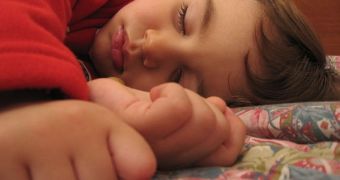According to new scientific research, it's not various mental conditions that affect our sleep and make people tired all the time, but vice versa. That is to say, too little sleep or agitated rest can easily trigger “malfunctions” as far as brain health goes, and may open the way to the development of some serious affections. Also, sleep deprivation can cause people to act in ways that can mislead doctors in believing that they are mentally ill.
There is also good news revealed in the study, in that people suffering from some mental conditions can cure them by simply regulating their lifestyles and sleeping sufficient amounts of time every night. On the other hand, the bad news is that many individuals may be taking psychoactive drugs that might be doing very little to help their conditions. Furthermore, these types of medication may actually be making things worse, by acting on parts of the brain that are not ill or otherwise affected, but simply fatigued to the point where they cannot function properly.
This “is very frightening. Wouldn't you think that it would be important for us as a society to understand whether 3 per cent, 5 per cent or 50 per cent of people diagnosed with psychiatric problems are simply suffering from sleep abnormalities?” psychologist Matt Walker, from the University of California in Berkeley, asks. It's crucially important then, he adds, that researchers further look into this issue in order to realize exactly to what extent sleep influences mental health, and just how many people suffer from actual disorders, as opposed to those who are just utterly tired and sleep deprived.
As an example, the researcher notes, individuals affected by depression are approximately five times more likely to experience difficulties while breathing in their sleep than others. This means that less oxygen reaches the brain, which is basically starved to the point where “errors” occur. Similarly, somewhere between 25 to 50 percent of children and teenagers suffering from the Attention Deficit Hyperactivity Disorder (ADHD) experience sleep disorders, as opposed to just 7 percent of their healthy peers, who are not diagnosed with the condition.
“It was just so easy to say about a patient, well, he's depressed or schizophrenic, of course he's not sleeping well – and never to ask whether there could be a causal relationship the other way,” Harvard University sleep researcher Robert Stickgold comments, and adds that a thorough reassessment of psychological procedures is in order, considering the new facts.

 14 DAY TRIAL //
14 DAY TRIAL //